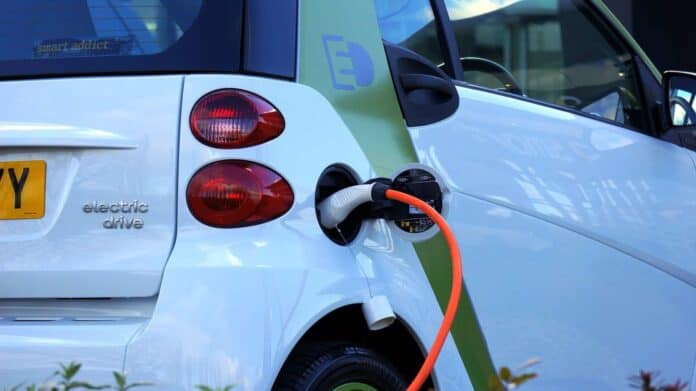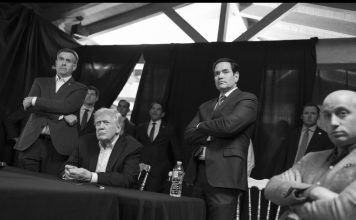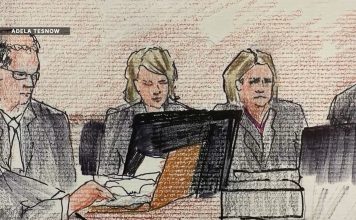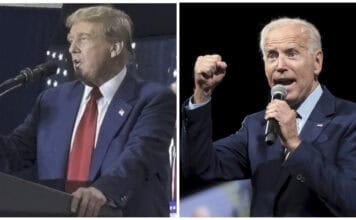Electric-powered cars are now the rage. Tesla’s market capitalization is seven times larger than that of General Motors and 14 times larger than Ford’s, though it builds a fraction of the vehicles that those companies do. Many politicians are even considering banning gasoline-powered cars within a few years in favor of electric vehicles (EVs), all in the name of saving the planet.
This has significant meaning to me. As a third-generation automobile dealer, I need to get ahead of the curve and prepare for what is next. I want to sell what people want to buy. I have driven the Volkswagen Golf EV, the Honda Clarity plug-in (PEV), and now the Hyundai Kona EV. All have good road characteristics and operate similarly to gasoline-powered cars, with the exception of how they are powered.
Some say that a 250-mile range is a must for an EV, and I agree. Charging one with a normal 120-volt plug requires about 54 hours so a Level II, 240-watt charger is needed – the same voltage that a home drier uses. To fully charge the Kona with its 64 kW battery requires up to ten hours. Plug in when you come home, and it is ready by the time you leave for work in the morning. A 250-mile range gets me just about anywhere I want to go.
I installed a Level II charger at my home. The cost: about $850. I am fortunate that my fuse box is located in the garage, so I did not need much additional wiring. The garage is where I charge these EVs overnight.
Driving from my home and with about 25 miles of battery range (10% of capacity), I headed off to the Reston Virginia fast charger, located in an office park. It is a few miles farther than the local gasoline station that I normally use. It had three charging towers, each with two cords. One of the cords fits only the Nissan Leaf. There were four 350 kW chargers and one 50 kW charger to select from. I chose the 50 kW charger, plugged in the cord, inserted my credit card, and experienced my first public fast charge.
The question remains: What is it like to have to depend upon a public charging station? Tesla has a robust, nationwide rapid-charging infrastructure, but Tesla uses a proprietary charging plug that does not work with other makes of vehicles. Volkswagen, as part of its diesel settlement, has constructed a large charging network under the name of Electrify America. Electrify America has the closest rapid chargers to both my home and my office.
Fast chargers will bring the battery only to an 80% total charge due to the limitations of lithium batteries. Charging above 80% will damage the battery. Since I arrived at the charging station with ten percent capacity remaining, I received an additional 70% charge, which gave me about 190 miles total range. It required one hour and ten minutes. The cost was $21.07, or 43 cents per kW. The cost would be about 34 cents per kW if I joined Electrify America for four dollars per month. Filling my gasoline vehicle for the same range would cost less – about $13. Charging an EV at a fast charger costs more per mile of range than filling up a gasoline-powered vehicle.
How long it takes a battery depends upon four things: the capacity of the charger, the capacity of the battery, the battery discharge condition, and the rate of charge that the battery will accept. The Kona will accept up to a 75 kW rate of charge.
I later charged with a 150 kW and 350 kW charger, but the time expended was no less. It was quite cold when I used the 350 kW charger. The charging time was actually about five minutes longer than when using the 50 kW charger. Perhaps the periodic cycling of my car’s heater was the reason. Using fast chargers can be quite boring, so make sure that you bring something to do.
What struck me first was how this could possibly work for me if I had to rely entirely on fast chargers and instead of my home charger. I drive at least 80 miles each day, which means I would have to recharge my Kona every other day assuming that I did not do more driving than just between my home and the office. Since it required over one hour to charge the battery, I would have to spend over 200 hours annually charging my vehicle – the equivalent of 25 eight-hour working days. And this assumes that I never had to wait in line for another vehicle to finish charging and that the charging station was nearby when I needed one. If I lived in a town home, or an apartment, without access to a Level II home charger, I would have to rely entirely on the public fast-charging network. And instead of a 250-mile range, I would have only about a 190-mile range to work with.
I know that some EV drivers combine shopping and other activities while they charge their vehicles. This might work with the more common, publicly accessible, and slower Level II chargers, but probably not with the Electrify America charging network, since there is only a ten-minute grace once the 80 percent charge is achieved. Otherwise, 40 cents per minute is tacked on to the cost of charging.
Next, I used the nearest fast-charging station from my office. It is 12 miles distant, a 20-minute drive each way. If I had to rely entirely on this charger, it would require one hour and 40 minutes every other day, or 300 hours every year. This would be equal to 37 eight-hour work days annually.
The other drawback to EVs is their higher cost. The MSRP of the 2021 Hyundai Kona Ultimate I have been charging is $46,985. The same model powered by gasoline has an MSRP of $31,370, or over $15,000 less. I have read that one reason for the price differential is that to manufacture a 1,000-pound battery requires the processing of 50,000 pounds of ore, and one must move 500,000 pounds of overburden to get the ore. The lithium, cobalt, copper, and rare-earth minerals required to manufacture the battery largely come from overseas. Eighty percent of battery manufacturing takes place in China, so this is likely to have an impact on our trade imbalance and energy independence.
Questions also arise about how many chargers would be needed to keep cars like mine on the road. One electrical cord could charge only about 20 cars each day (80 miles per day driving and 170 miles available driving range). Perhaps a more realistic capacity would be 12 cars a day, since it is doubtful many would be doing this in odd hours. Ten thousand cars like mine would require 416 charging cords (or 208 towers with two cords each). It would require only about 14 gasoline hoses (or seven towers) to fuel the same number of gasoline-powered vehicles at 50% capacity. One hundred thousand EVs would require over 4,000 available charging cords.
Besides the extra cost to purchase an EV and the larger carbon footprint, the greatest drawback by far will be what to do with all those hours spent waiting while one’s car is charging.
EVs start their lives with a larger carbon footprint than gasoline vehicles. Another question is how these batteries will be charged, since electricity mostly comes from non-renewable energy sources such as coal, natural gas, and nuclear energy. Some speculate that EV costs will decline with mass production, and that battery-charging times will be reduced with newer technologies. If this does not occur, then affordability, lack of range, and charging times will be major handicaps.
Geoffrey Pohanka / RealClearWire
Go to Source
Reposted with permission


















![Mandela Barnes Said ‘Reducing Prison Populations is Now Sexy’ [VIDEO] Reducing Prison Populations is Now Sexy](https://www.wisconsinrightnow.com/wp-content/uploads/2022/09/Collage-Maker-14-Sep-2022-11.44-AM-356x220.jpg)














